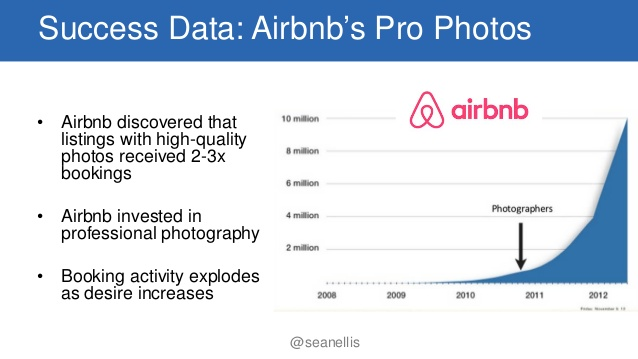Introduction
Airbnb, the globally recognized hospitality platform that connects hosts with travelers, has witnessed significant success in India, a nation rich in cultural diversity, with a rapidly growing middle class and a booming appetite for travel. Since its official launch in India in 2016, Airbnb has emerged as a formidable player in the hospitality industry, offering a unique alternative to conventional hotels and accommodations. This comprehensive case study delves into Airbnb’s journey in India, shedding light on the factors that contributed to its success, the pre-existing market conditions, and the innovative business strategies that helped it stand out in a competitive landscape.
The Emergence of Airbnb: Addressing the Market Gap
India’s tourism sector has experienced exponential growth over the past decade, driven by an increase in domestic travel, rising disposable incomes, and several government initiatives aimed at boosting tourism. Despite this growth, the traditional hospitality sector, primarily composed of hotels and resorts, often struggled to meet the evolving needs of modern travelers. Rigid hotel offerings, a lack of personalized experiences, and limited options for budget-conscious travelers created a significant gap in the market. Furthermore, India’s vast cultural and geographical diversity meant that travelers were increasingly seeking more authentic and immersive experiences, something that traditional hotels often failed to provide.

India’s tourism sector has experienced exponential growth over the past decade, driven by increased domestic travel, rising disposable incomes, and several government initiatives to boost tourism. Despite this growth, the traditional hospitality sector, primarily composed of hotels and resorts, often struggled to meet the evolving needs of modern travellers. Rigid hotel offerings, a lack of personalized experiences, and limited options for budget-conscious travellers created a significant gap in the market. Furthermore, India’s vast cultural and geographical diversity meant that travellers were increasingly seeking more authentic and immersive experiences, which traditional hotels often failed to provide.
Airbnb identified this gap and saw an opportunity to cater to a new generation of travellers who sought unique, flexible, and affordable accommodation options. By allowing homeowners to rent out their properties to guests, Airbnb provided a win-win solution. Hosts could monetize their underutilized assets, while travellers gained access to a diverse array of accommodations, ranging from heritage homes in Rajasthan to beachfront properties in Goa.
Pre-Airbnb Market Conditions in India
Before Airbnb made its entry into the Indian market, the hospitality industry was primarily dominated by traditional hotels, which spanned from budget-friendly establishments to luxury chains. The market was highly fragmented, characterized by a mix of unorganized budget accommodations and organized luxury and mid-range hotels. While luxury hotels catered to affluent travelers, budget accommodations were often associated with subpar service quality and safety concerns, particularly for solo travelers and women.
The advent of online travel agencies (OTAs) like MakeMyTrip and Yatra brought some level of organization to the market by aggregating hotel listings online. However, these platforms mainly focused on traditional hotels and did not cater to the growing demand for unique, localized experiences that many travelers sought.
Airbnb’s Strategic Differentiators
Airbnb’s success in India can be attributed to several key factors that differentiated it from traditional hospitality providers and other online platforms. These differentiators not only helped Airbnb carve out a niche in the market but also resonated deeply with Indian travelers.
1. Diverse and Unique Accommodations
One of Airbnb’s most significant advantages is its ability to offer a wide range of accommodation options that go beyond the typical hotel experience. Whether it’s a treehouse in the forests of Kerala, a houseboat on the backwaters of Alleppey, or a historic home in the heart of Jaipur, Airbnb’s platform provides travelers with the flexibility to choose accommodations that match their preferences and budget. This diversity of options struck a chord with Indian travelers, who highly value cultural experiences and unique stays.

2. Personalized and Localized Experiences
Airbnb’s emphasis on offering personalized and localized experiences was another critical factor in its success. Unlike traditional hotels, which often provide standardized services, Airbnb hosts offer insights into local culture, cuisine, and attractions. This approach allows travelers to experience destinations more authentically, as though they were locals. The ability to immerse oneself in the local environment has been a significant draw for travelers seeking more than just a place to sleep.
3. Affordability and Flexibility
Airbnb caters to a broad audience by offering a range of price points, making it accessible to everyone from backpackers to luxury travelers. The platform’s flexibility, which allows guests to choose between entire homes or shared spaces, was particularly appealing to budget-conscious travelers and families. Additionally, the option to negotiate prices directly with hosts added another layer of financial flexibility, making Airbnb an attractive choice in a price-sensitive market like India.
4. Trust and Safety Features
Building trust is crucial in a market where safety is a significant concern, especially for solo travelers and women. Airbnb’s platform includes several features designed to foster trust between hosts and guests, such as verified profiles, detailed reviews, and secure payment options. The introduction of Airbnb Plus and Superhost programs further enhanced trust by highlighting hosts and properties that consistently deliver high-quality experiences. In a market like India, where trust and safety are paramount, these features played a vital role in gaining customer confidence.
5. Strategic Partnerships and Localization
Airbnb’s success in India was also bolstered by its strategic partnerships with local companies and government initiatives. Collaborations with state tourism boards, local travel agencies, and cultural organizations helped Airbnb integrate seamlessly into the Indian market. The platform also localized its services by offering multilingual support, payment options in local currency, and addressing the specific needs of Indian travelers, such as group bookings and family-friendly accommodations.

6. Focus on Domestic Travel
Unlike many global travel platforms that initially focused on attracting international tourists, Airbnb recognized the vast potential of the domestic travel market in India. The platform’s emphasis on catering to Indian travelers, especially in the wake of the COVID-19 pandemic when international travel was heavily restricted, allowed it to establish a strong foothold in the market. This focus on domestic travel proved to be a strategic advantage, as more Indians began to explore their own country, seeking out unique experiences closer to home.
Conclusion: Business Lessons from Airbnb’s Success in India
Airbnb’s journey in India offers several valuable lessons for businesses looking to enter and succeed in diverse and dynamic markets like India.
1. Understanding Local Markets is Key
One of the critical takeaways from Airbnb’s success is the importance of understanding and adapting to local market dynamics. By recognizing the growing demand for unique, affordable, and localized travel experiences, Airbnb was able to tailor its offerings to meet the needs of Indian travelers. Businesses looking to enter diverse markets like India must invest in thorough market research and localization efforts to ensure they resonate with the target audience.

2. Flexibility and Innovation Drive Growth
Airbnb’s ability to offer flexible accommodation options, ranging from budget-friendly stays to luxury experiences, allowed it to appeal to a broad spectrum of customers. Furthermore, the platform’s innovative approach to hospitality, where hosts are encouraged to provide personalized experiences, set it apart from traditional players. Companies that prioritize innovation and flexibility in their offerings are better positioned to meet the evolving needs of consumers and remain competitive in the market.
3. Building Trust is Crucial
In markets where trust is a significant concern, especially in the sharing economy, building a reliable platform with robust safety features is essential. Airbnb’s focus on trust and safety through verified reviews, secure payments, and quality assurance programs played a vital role in gaining customer confidence in India. For businesses in the sharing economy or those that rely heavily on user-generated content, prioritizing trust-building measures is crucial for long-term success.
4. Leveraging Partnerships Enhances Market Penetration
Airbnb’s rapid expansion in India was greatly aided by its strategic partnerships with local businesses, government bodies, and tourism boards. These collaborations allowed Airbnb to localize its offerings and integrate more effectively into the Indian market. For businesses entering new markets, forming alliances with local partners can provide valuable insights, resources, and networks that accelerate growth and market penetration.
5. Adapting to Changing Market Conditions is Essential
The COVID-19 pandemic presented unprecedented challenges to the travel and hospitality industry. Airbnb’s ability to quickly adapt to changing market conditions by focusing on domestic travel and local experiences highlighted the importance of agility in business strategy. Companies that can swiftly respond to external shocks and evolving consumer preferences are more likely to thrive in uncertain environments.











